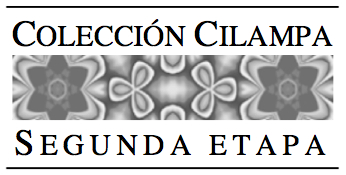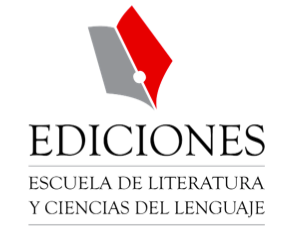Parodic Inversion of the Gaucho in Néstor Perlongher
DOI:
https://doi.org/10.15359/rl.2-74.2Keywords:
intertextuality, parody, inversion, Gaucho, Argentine poetryAbstract
A study of the poem “Moreira” by the Argentine poet Néstor Perlongher is carried out focusing on the parodic representation of the figure of the gaucho. The development of the study is based on the concepts of intertextuality and parodic inversion, which help to determine the processes of inversion around this literary figure. A textual analysis is conducted in dialogue with intertextual theory, the Gaucho tradition and specialized criticism. Thus the poem is characterized as an artistic object that articulates gender criticism with that of hegemonic power.
References
Bazán, Osvaldo. Historia de la homosexualidad en la Argentina. De la Conquista de América al siglo XXI. Buenos Aires: Marea, 2010.
Benítez, Mauro y Palacios, Omar. «Homosocialidad masculina como núcleo de resistencia a las posibles transformaciones de la masculinidad hegemónica», Revista de Investigación en Psicología Social 4, 2 (2018): 21-31.
Borges, Jorge Luis. El Matrero. Buenos Aires, Edicom, 1970.
Gasparri, Javier. «Poesía y política en Néstor Perlongher», Revista Anclajes XVI, 1 (2012): 17-38. <https://www.redalyc.org/articulo.oa?id=22435828002>.
Gutiérrez, Eduardo. Juan Moreira Buenos Aires: N. Tommasi, 1888). Biblioteca Virtual Miguel de Cervantes. <https://www.cervantesvirtual.com/obra-visor/juan-moreira--0/html/ff910ba8-82b1-11df-acc7-002185ce6064_2.html>.
Hutcheon, Linda. L. A Theory of Parody. The Teachings of Twentieth-Century Art Forms. Nueva York: Meuthen, 1985.
Kristeva, Julia. «Bajtín, la palabra, el diálogo y la novela», Intertextualité. Francia en el origen de un término y el desarrollo de un concepto. Rinaldo Acosta, ed. La Habana: UNEAC, 1996.
Laurent, Jenny. «La estrategia de la forma», Intertextualité. Francia en el origen de un término y el desarrollo de un concepto. Rinaldo Acosta, ed. La Habana: UNEAC, 1996.
Llanos Melusa, Eduardo. «Machismo y autoritarismo en Martin Fierro», Guaraguao 56 (2018): 65-72. <https://www.jstor.org/stable/44872193>.
Perlongher, Néstor. Poemas completos. Coppell: La Flauta Mágica, 2014.
Retamoso, Roberto. «Reescrituras del Moreira», La trama de la comunicación, 10 (2005): 85-94. DOI: https://doi.org/10.35305/lt.v10i0.123.
Riffaterre, Michael. «Semiótica intertextual: el interpretante», Intertextualité. Francia en el origen de un término y el desarrollo de un concepto. Rinaldo Acosta, ed. La Habana: UNEAC, 1996, 147.
Rosa, Nicolás. Tratados sobre Néstor Perlongher. Buenos Aires: Ars, 1997.
Sempol, Diego. «Homosexual: entre el insulto y el orgullo», Políticas de la memoria 18 (2018): 222-233. DOI: https://doi.org/10.47195/18.26.
Valbuena-Briones, Ángel. «El gaucho como figura literaria», Anales de Literatura Hispanoamericana 2 (1973/1974): 633-640. <https://revistas.ucm.es/index.php/ALHI/article/view/ALHI7374110633A>.
Zapata, Miguel Ángel. «Néstor Perlongher: La parodia diluyente», Revista de Literatura Hispánica 26/27 (1987-1988): 285-297. <https://www.jstor.org/stable/23285084>.
Downloads
Published
How to Cite
Issue
Section
License
Principios básicos:
a) Los autores conservarán los derechos de propiedad intelectual de sus aportes o artículos;
b) Cada autor deberá indicar expresamente que ese artículo lo entrega, en calidad de exclusividad, a la revista LETRAS; y
c) La revista Letras se reservará el derecho de autorizar para fines académicos no lucrativos la reproducción y uso de ese material por parte de terceros, siempre que éstos indiquen expresamente la procedencia del artículo. Todo ello se postula en concordancia con la normativa de "Creative Commons Atribution License", recomendada.

This work is licensed under a Creative Commons Attribution-NonCommercial-NoDerivs 3.0 Costa Rica License.















